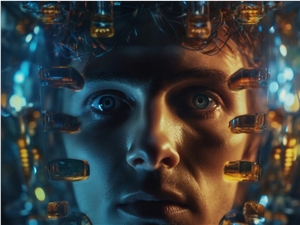With advancements in AI technology, OpenAI recently launched its latest reasoning models – o3 and o4-mini. These new models are not only more powerful in text understanding but also possess image reasoning capabilities, quickly becoming user favorites. According to TechCrunch, a growing number of users are leveraging ChatGPT to pinpoint the exact location where photos were taken, a phenomenon attracting widespread attention on social media.
The o3 and o4-mini models boast strong image analysis capabilities. Users can upload photos for detailed analysis. These models can handle blurry or distorted images, performing cropping, rotation, and magnification for more accurate identification. In user trials, ChatGPT demonstrates excellent inference capabilities, deducing cities, landmarks, and even specific restaurants and bars from photo details.

However, this convenience raises privacy concerns. Users can upload someone's social media photos and, using ChatGPT's powerful analytical capabilities, attempt to infer the photo's location. This process presents minimal technical barriers, causing unease for many. While o3's location capabilities are not perfect, user feedback mentions the model occasionally getting stuck in inference loops or providing incorrect locations, but this possibility still fuels privacy concerns.
It's noteworthy that OpenAI hasn't yet implemented effective measures to prevent this "reverse geolocation" behavior, and related security issues haven't been addressed in the o3 and o4-mini security reports. Balancing the convenience offered by these new reasoning AI models with user privacy protection has become a critical issue requiring immediate attention.
The release of o3 and o4-mini showcases the immense potential of artificial intelligence while simultaneously sparking renewed discussions about privacy and security. While enjoying the convenience technology offers, users should remain vigilant about potential risks.








